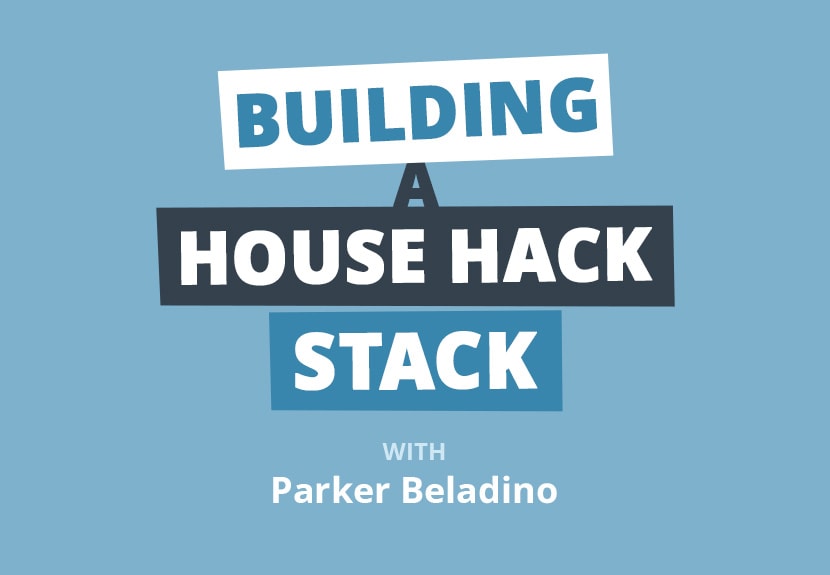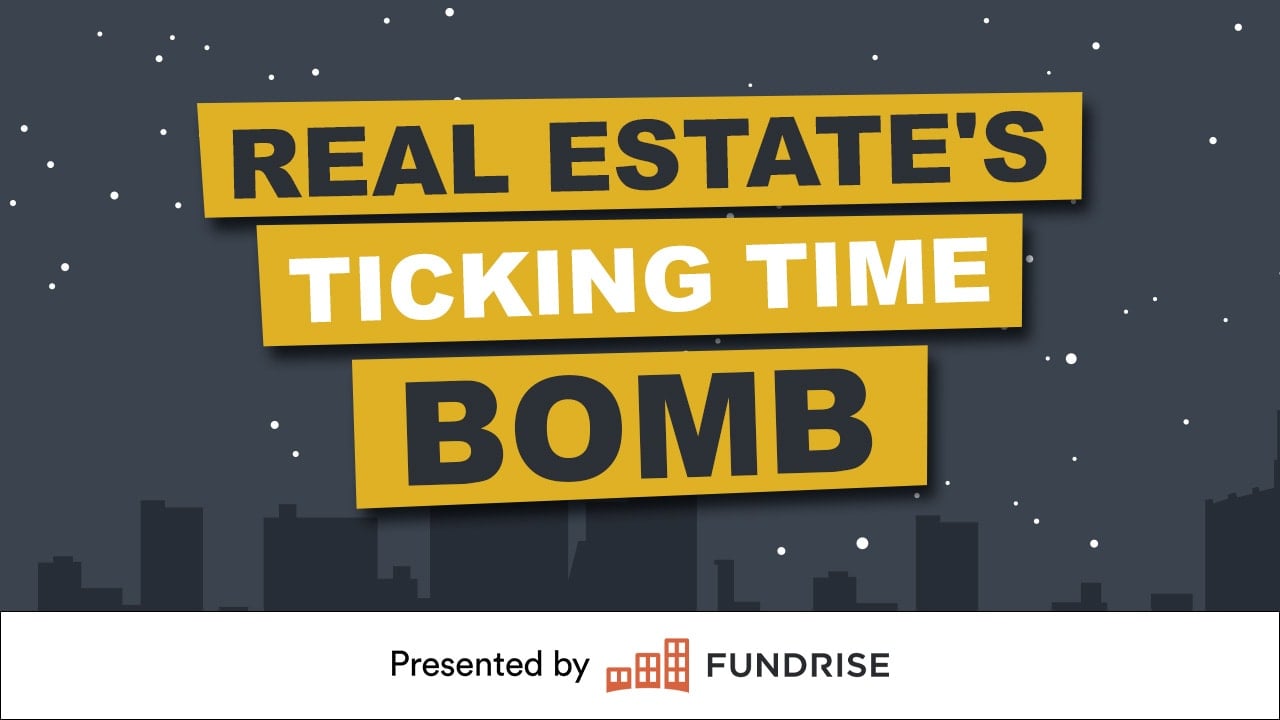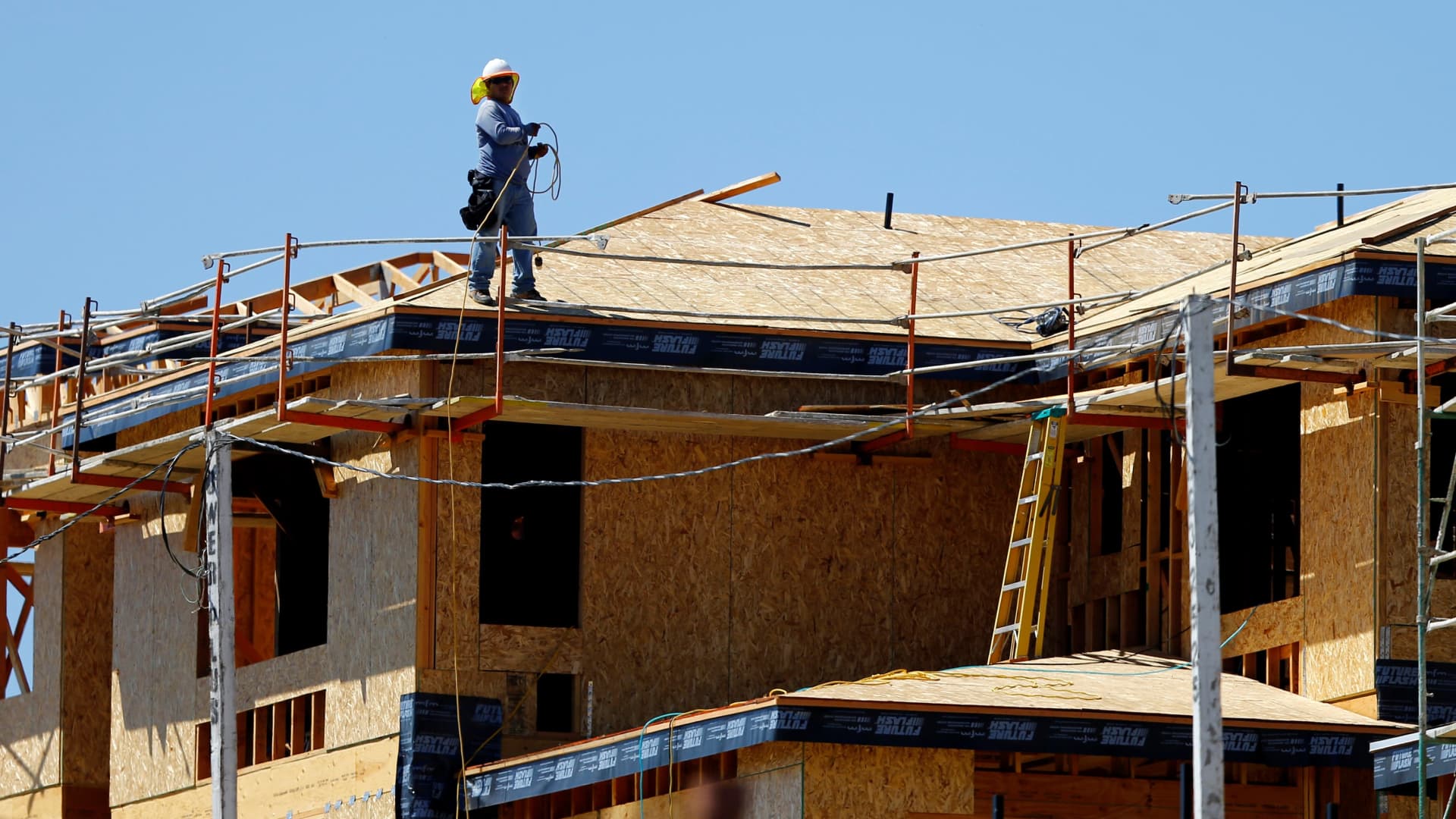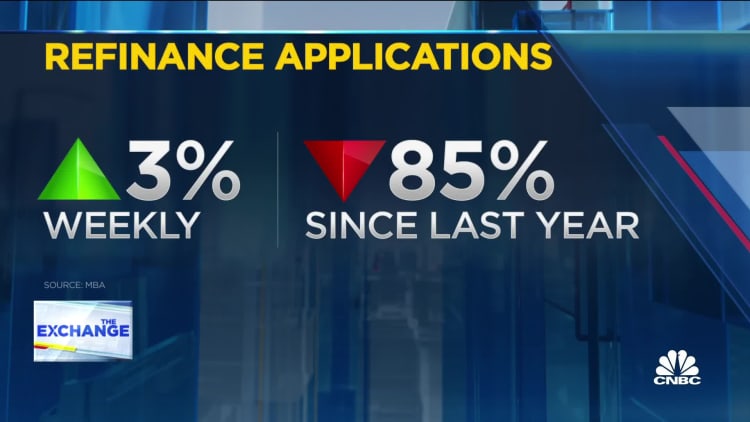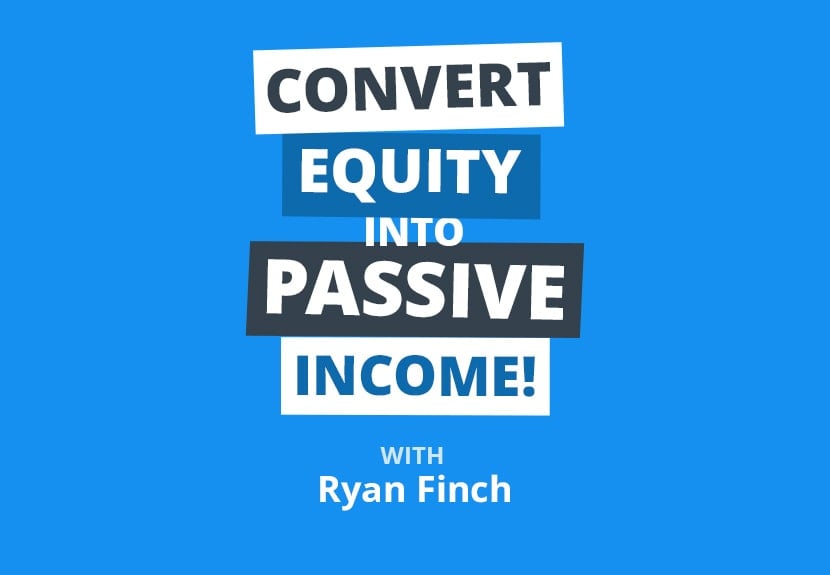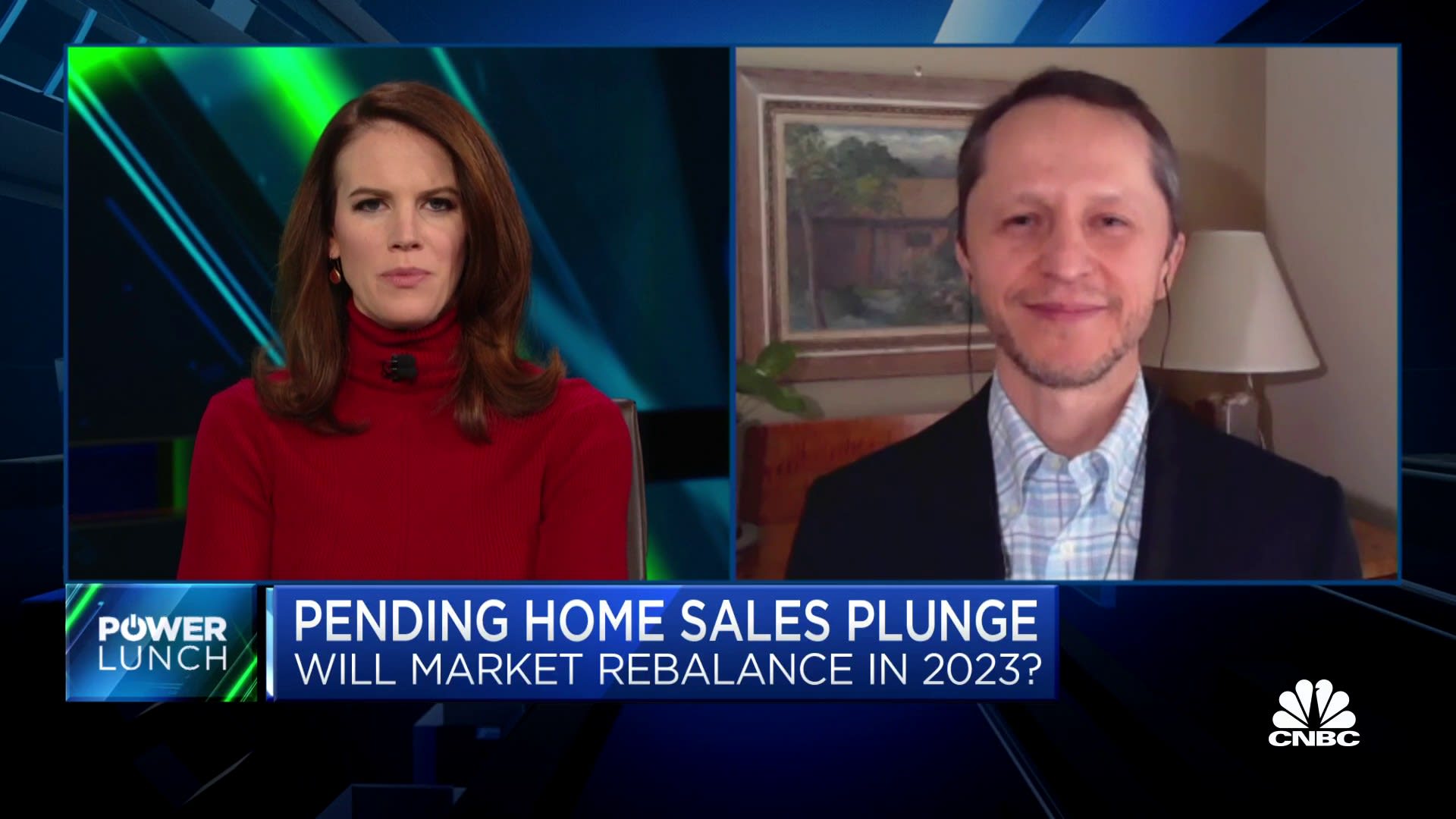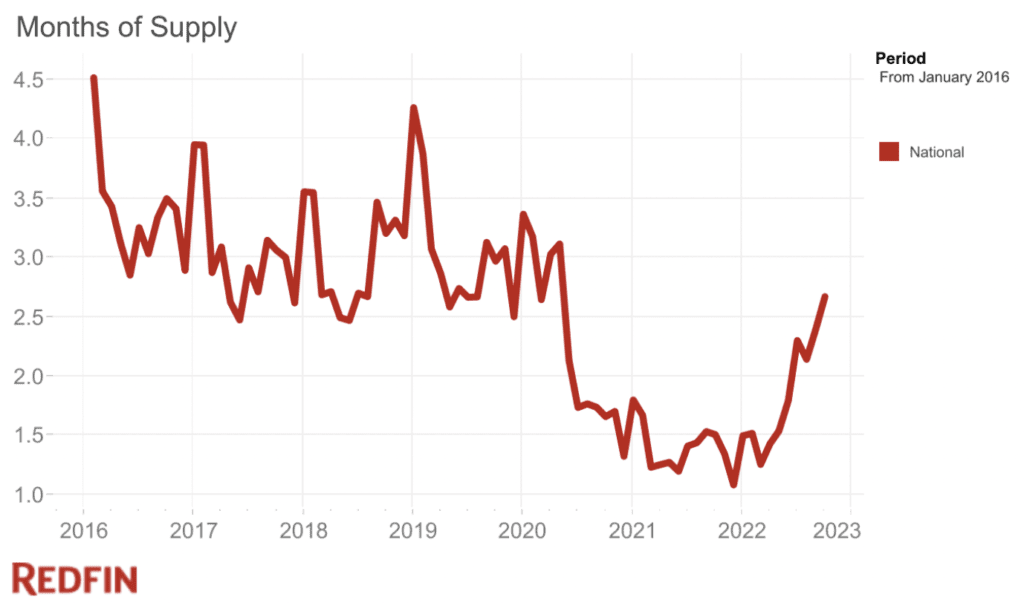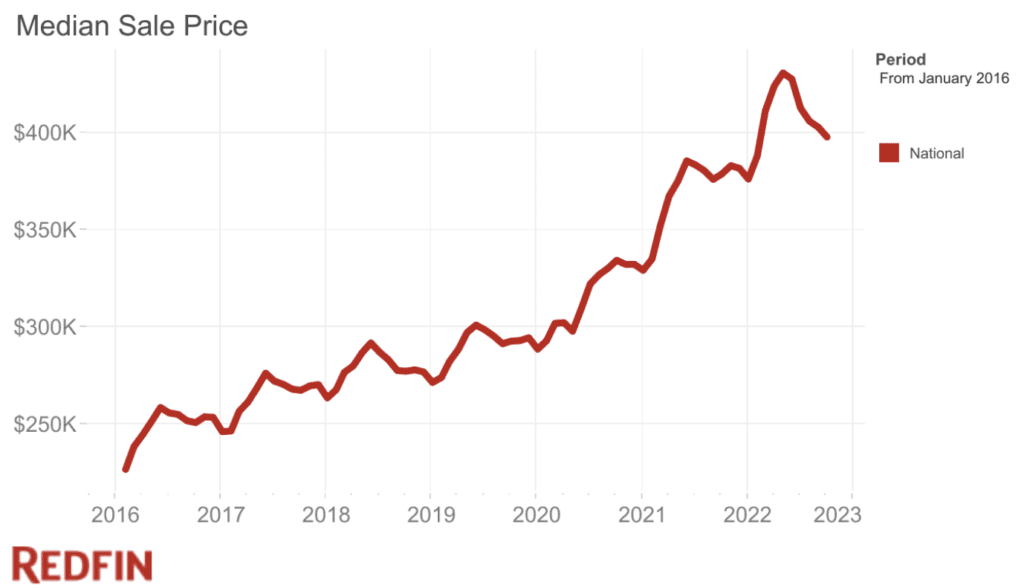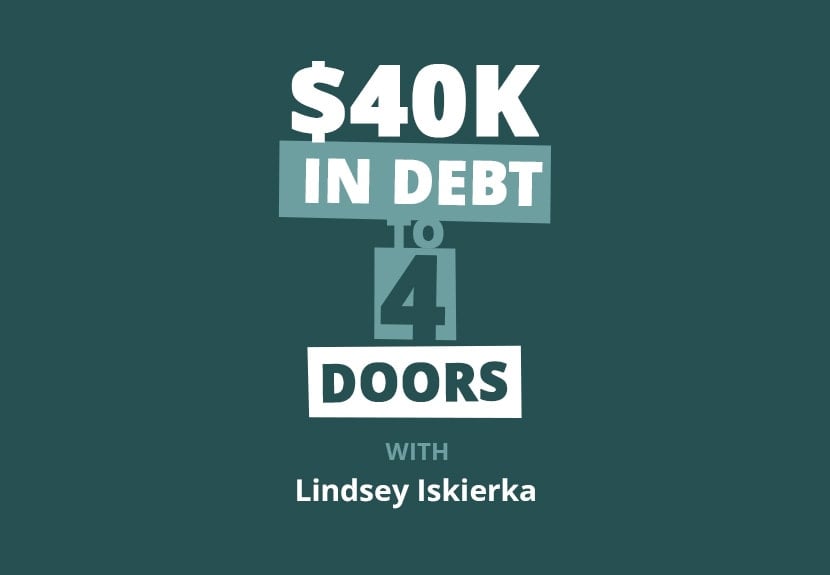Do You NEED an LLC for Rental Property?
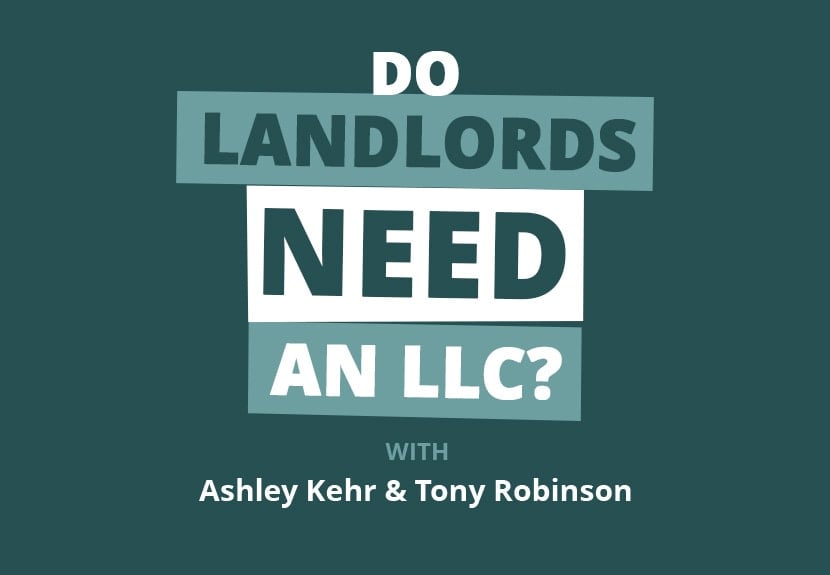
Do you need an LLC for rental property investing? Ask some investors, and they’ll hit back with a resounding “of course!” But ask another group of investors, and they’ll tell you “not at all!” This duality causes many rookie investors to become confused, not knowing when to protect their property with the limits that come with an LLC. So how are millionaire investors setting up their properties and partnerships? Or, more specifically, what are Ashley and Tony doing to protect themselves?
Welcome back to this week’s Rookie Reply! We’ve got some great questions queued up for our cabin and campground co-hosts, Ashley and Tony, to answer! First, we take a question about what to ask a seller during a final walkthrough, and how talking to tenants may be worth the extra time. Then, we hint at when to ask a listing agent for financials on a commercial property, the great LLC vs. umbrella insurance debate, and finally how to buy an investment property when you’re strapped for cash!
If you want Ashley and Tony to answer a real estate question, you can post in the Real Estate Rookie Facebook Group! Or, call us at the Rookie Request Line (1-888-5-ROOKIE).
Ashley:
This is Real Estate Rookie, episode 248.
Tony:
But you have to weigh the pros and cons of the risks associated with keeping it in your personal name versus the cost of doing it under the LLC.
Ashley:
And what you just said, I think is one of the most missed expenses on a line item, when people are analyzing a deal, especially it’s your first deal, you are putting it into an LLC. I don’t see a lot of people accounting for those fees that you just said of setting up an LLC, that’s going to enter your cash flow. Maintaining the LLC, it’s only $25 in New York City.
Tony:
25?
Ashley:
Every year for the annual filing fee.
My name is Ashley Kehr and I am on live with my co-host Tony Robinson.
Tony:
And welcome to the Real Estate Rookie Podcast, where every week, twice a week, we’re bringing you the inspiration, motivation, and stories you need to hear to kickstart your investing journey. And I want to start today’s episode by shouting out milkman2333.
Milkman left us a 5-star review on Apple Podcast and said, “I owe everything to this podcast. What an amazing show, easy to listen to, and I love when they give updates on themselves. Started listening in May 2020 and because of them, I had the courage to buy in November 2020, January 21 and September 2021. Trust me and listen. Next up for me, is partnership with the silent partner. Thanks, Tony and Ashley, I owe it all to you guys.”
Well, milkman, we appreciate that. And honestly, that’s why we do what we do. We love hearing stories just like that. So if you haven’t yet left us a 5-star or honest, I should say, I’m waiting and review on whatever platform it is you’re listening to. Do yourself a favor, do us a favor and leave them for us.
Ashley:
And that’s why me and Tony, are geeking out because tonight and we are going to a meet up, we are going to get to hear so many inspiring stories from rookie investors and just experienced investors or the motivation and excitement of somebody who’s trying to get started in real estate and attends this networking event.
Tony:
Yeah. It’s so crazy. As much joy as I get from buying that next property and getting that listing live and seeing the returns come in. It’s a different level of fulfillment when I read stories like that and hear people in the rookie audience who say, “I was afraid, I was confused, I was lost. I didn’t know where to start. And I started listening to the podcast and now I have one deal, two deals, five deals.” And we hear these same stories over and over and over again. And it’s just such a crazy and humbling kind of position for us to be in.
Ashley:
Well, tell everyone about that text that you were telling us about this morning that you got about the person who bought the short-term rental.
Tony:
So Olivia Tati, she sent me a text over the weekend and she said, “Tony, thank you so much for your inspiration, for your guidance.” She’s just taken her first listing live and she was like, “Within the first couple of weeks, our mortgage is covered for the next couple of months and they just took the listing live.” So hearing stories like that, it’s crazy. It makes it all worth it.
Ashley:
Okay. Well, today we’re going to go over four Rookie Reply questions. We are going to talk about LLCs, putting properties into your personal name and what are some of those differences and what you should consider when deciding to do that. Then we’re also going to talk about financing options.
We have Lisa who gives us a scenario of what her current financial situation is, and we give her some ideas as to how she can tap into some money to buy her first investment property.
Tony:
Yeah. And then we also kind of finish off by talking about what to do at that final stage of your escrow period? What are those things you should be looking for to make sure you’re not stepping into a bad deal? So overall, lots of good questions.
Ashley:
Yeah.
Tony:
All right, so let’s get into our first question, which comes from Evan Yen, and Evan’s question is, “What are the best questions to ask a seller during the final walkthrough?” So I can kind of share my experience, first.
I don’t think I’ve even really seen most of the sellers that I bought my properties from. I’m typically not there during the inspections. If it’s a rehab, I typically will walk with my crew. But if it’s just a typical property that we’re buying, short-term rental, I’m almost never there during the property inspection. So I don’t really ask the seller any questions.
What I do use is information from the property inspection report to kind of inform my decisions around, not even what I need to ask the seller, but what are the things I need to follow up on. So for example, we have a property center contract right now and we had our first inspection come back and there were a lot of question marks.
Some of the things that came out of that are, “Do we need to replace the septic?” The property inspector couldn’t get access to the septic tank, it’s an older property. We want to know what the condition of that is. We need to follow up with that. There’s no working HVAC system. So now we need to go and look out, “Okay, what are we doing to quote out new HVAC?”
There’s a pool in the backyard, that’s been filled with dirt. What is it going to cost for us to go out and get that pool brought back to life? So I think the property inspection honestly is going to give you a lot of the questions that you need to ask yourself when it comes to purchasing this property. What do you think, Ash?
Ashley:
Yeah, and to get technical, when I hear the word final walkthrough, I think about you’re ready to close the next day and you’re doing one final walkthrough of the property. So I don’t know if that’s what they mean or just any kind of walkthrough of the property, after you’ve gotten it under contract, but I typically don’t see a lot of the sellers either doing those processes even if I am going to the property myself, a lot of times the sellers aren’t there.
So if it’s an off-market deal, it most likely is the seller taking you through the property, again, but I would say you can get a lot of information just from listening and not even asking questions from the seller, but everything they say anyways, make sure you’re verifying that information too.
So just some typical things that you can ask about the property, if you did do an inspection, ask them about these issues, these problems that came up. If they have any more information about it, are there any things, any kind of routine maintenance that they currently do on the property that you should be aware of? And then just maybe the history of the property too. Finding out things like that.
But as far as if it’s the final walkthrough, it’s the day before closing, I don’t see a lot of questions that you could ask because you’re already forced to close the property, anyways.
Tony:
You’re pretty close. One thing I will add is sometimes you do give value by talking to the tenants. There’s a property that we did walk yesterday, the owner wasn’t there, but the tenant was there and she gave up some information around, some deferred maintenance and things she had noticed about the property. So sometimes if you talk to the tenant at the property, they can give you maybe more information than even the actual owners can.
Ashley:
Yeah. I love when tenants are home and I see your property. I feel very uncomfortable-
Tony:
Ashley, this is dollars sounds.
Ashley:
… that I’m walking through because I do feel a lot of tenants, it’s a hard situation for them not knowing who’s going to buy it, what’s going to happen, are they going to have to move? And that can be very uncomfortable coming in as a potential buyer and just being in that situation. But I do think you can get tons of information from the tenant.
And what I do too is I ask the seller once I have it under contract, if I can send an estoppel agreement to the tenants. And this basically is a form that the tenants are going to fill out with their contact information and then what the terms of their lease agreement are. If they own any of the appliances, what utilities they pay, do they have any pets, just all the information about them that would typically be on a rental application or be in their lease agreement. And then I also compare that to either what the owner, the seller had said, or what is in the lease agreement.
Another thing I ask too is, what are repairs and maintenance that need to be done to the property? And you usually hear an earful of repairs that actually need to be made or just improvements that they would like seen done to the property too.
Tony:
So Evan, hopefully that helps answer the question for you, but again, everything we shared I think is what you want to lean on. But to me, tenants inspection reports as we were going to get a lot of golden information.
Ashley:
Okay, next up. Oh you know what? Actually, before we go to the next one, I’m going to say one more thing about that information on the property. The last thing I’ll say, is Google the address of the property.
Tony:
That’s a great idea.
Ashley:
Because I had a wholesaler try to sell me a property and you know what? I just knew that I had seen that property somewhere and the address of it looked so familiar. So I googled it and it had been a meth lab.
I remember it being in the news that they had busted this house and when you cook meth in a property, you have to do some kind of remediation to make it safe from all the chemicals in there. So just Googling a properties address can give you information on the property too.
Tony:
Just imagine going to list that property for rent and you thought, 123 main street and then potential tenants type in, 123 main street and the first thing that pops up is meth house.
Ashley:
Yeah.
Tony:
You’d want to, A, know about that before the tenants. And B, be able to say, “I know, we took care of it, here’s what we did. It’s brand new XYZ.”
Ashley:
Right. And it was a wholesaler trying to sell it. So the fact the wholesaler hadn’t even Googled the address and was trying to sell the property into somebody else, he did not know anything about that. And I don’t think he was ever able to get rid of that property-
Tony:
Sell that property.
Ashley:
… and probably fell out of contract. Yeah. Okay. The next question is from Caitlyn Lauture. “Question for anyone with experience with mid-size multi-commercial. Is it appropriate to ask the listing agent for financials upfront before even seeing the property? Or is that information only disclosed during due diligence period? In other words, how much information can I ask for upfront? I’d love to base analysis on actuals, trying to determine what is customary so I can ask the best questions and make the best impression with the seller. Thanks all.”
So I actually did this today. Someone sent me a campground for sale and immediately I emailed requesting the financials on the property and then said I would like to review those before I go and see the property, because I think there’s so much more information you gather from the numbers on the property that you can see kind of an idea of, “Okay, this is where it makes sense. Is it even worth me going to the property to look at it and kind of doing some due diligence beforehand?”
Tony:
Yeah. I think in the commercial space, most brokers almost expect potential buyers to request financial information. Usually, you will have to submit or sign some kind of non-disclosure agreement or NDA, but as soon as you sign that, most brokers will send you a trailing 12 for like, “Hey, here’s a property over the last 12 months.” They might send you tax returns, just anything they have. P&Ls, regarding the property and the owner’s financials.
Because for a commercial property, you almost do need that information to be able to even make an informed offer around what you’re willing to pay for, because if you think it’s doing X, but in reality it’s doing Y, when you go to purchase that property, get debt, whatever it is, it’s going to be far more difficult for you. So I think that is common for commercial.
Ashley:
And especially if there’s leases on the property too. You want to get copies of the leases and know what the rent is now on the property and how long of a term you’re going to be stuck with that rental income, because you could know projections that the market rent for this size unit is X amount, but it could be way undervalued, and there you still have 12 more months left on their lease and you’re going to have to carry that property along those 12 months at that lower rental income, which would vastly decrease your cash flow over that time. So completely appropriate and I highly recommend asking for the financials upfront.
I have had times where the agent has said they don’t really have financials. It’s a mom-and-pop self storage facility, where they go there the first Sunday of the month, collect the rent and cash, but that gives you actually more leverage.
Tony:
Leverage.
Ashley:
So that’s where you go to the realtor. Well are they going to be accepting seller financing offers since this would be a hard property for a bank to finance with no financials and a track record.
Tony:
And just break down what Ashley’s saying, most commercial lenders when they’re lending on self-storage, large partner complexes, whatever it is, they’re not looking at Ashley and Tony as the borrower to say, “Well, we give you this debt.” What they’re looking at is, “What is the current and historical performance of that property, and can the performance support the debt that we’re going to give you guys?”
So we ran into this issue a lot as we were looking for hotels this past year to try and purchase, is that a lot of them were small mom-and-pops that had terrible books or no books whatsoever. And because of that, most banks weren’t willing to lend on those properties. Banks want to see stabilized assets.
But to your point, it did give us leverage because we got multiple seller financed offers, that sellers willing to entertain because they knew that that was the only way they were going to sell that property.
Ashley:
Yeah, and that out is to, it’s completely appropriate to ask for those kind of things, as much as information as you want before you’re even under contract if that’s what you need to run your numbers, because you don’t want to be stuck estimating something that you could verify before you make that offer.
Tony:
All right, well let’s jump into the next question. This one comes from Cade Bigelow. Cade says, “I’m super new to this. I just found out about BiggerPockets a few weeks ago, but what is the importance of putting your home under an LLC instead of your personal name? Is that something you should do, that everyone should do or only in certain situations?”
So Ash and I both kind of come from different ends of the spectrum where almost none of my long-term holds are under my personal or are under my LLC and Ashley’s on the opposite and we’re almost all of yours are in LLCs, right?
Ashley:
Yeah.
Tony:
So I’ll kind of talk about it from my perspective of why I didn’t, and then Ashley can talk about maybe why you did go that way.
For us, a lot of the debts that we were using didn’t allow us to purchase it using an LLC. We got personal debt, which meant we had to hold those titles in our personal names. Now, we could have gone back and updated those loans, I’m sorry, updated the titles on those properties after we closed to change ownership from our personal names to our LLC and then kept the debt on our personal names. We just haven’t done that.
Instead, what we opted to do was to get an umbrella policy. So we have debt titles on our personal names, then we have this umbrella policy that gives us that additional layer of protection in addition to our home insurance. So for us, what was more important was getting the most favorable debt terms, and in order to get that, we had to, under our personal names.
Ashley:
For my properties, when I first started out investing, I wanted that nice 30-year fix, low interest rate. So I did a lot of the rentals that I owned myself in my personal name. Then every time I have a partner, I put that partner into an LLC. So any properties we buy together go into that LLC with partner A. Anything I buy with partner B goes into that LLC together. And then we typically get commercial financing on those properties.
I have found one bank that would lend me on the residential side for putting a property into an LLC. It was not a 30-year fix, but it was a 25-year fix, but at the time, interest rates were around four and a half percent if I would’ve done it in my personal name. And they charge us 7.375%. So it almost would’ve been better off going to the commercial side and getting it fixed for five years to have that lower interest rate, but once again, the mistakes you make is a rookie investor.
So typically mine are in an LLC for the liability protection, especially with having partners. I never recommend that you go on title in your personal name with somebody else in their personal name too. So I like having that liability protection is the biggest thing why my properties are in an LLC and then I’m mostly doing commercial lending at this point.
Tony:
I think the other thing to consider too, Cade, is the additional cost comes along with LLCs because in California, I don’t know, I think our attorney charge is 1200 bucks. So just file all the paperwork, set everything up, and then every year it’s $800, just to maintain the LLC.
You have your additional tax returns, you have to file every year for your LLC, your QuickBooks subscriptions for each LLC, the bookkeeping becomes a little bit more expensive because there’s multiple files that your bookkeepers are working with. So there definitely is an additional cost to having multiple LLCs. So you have to kind of weigh the pros and cons of the risks associated with keeping it in your personal name versus the cost of doing it under the LLC.
Ashley:
And you can also get umbrella insurance if you do have in your personal name, and that’s what I did, was get an umbrella insurance policy that basically on top of your landlord policy that covers the rental, you have another higher coverage so that if you are sued, there’s more money that the insurance company would pay out to protect you in a lawsuit.
And what you just said, I think is one of the most missed expenses on a line item, when people are analyzing a deal, especially it’s your first deal, you are putting it into an LLC. I don’t see a lot of people accounting for those fees that you just said of setting up an LLC that’s going to enter your cash flow. Maintaining the LLC, it’s only $25 in New York City.
Tony:
25?
Ashley:
Every year for the annual filing fee.
Tony:
800 in California.
Ashley:
It’s about $800 to start it, the LLC with total fees, but to do the every year it’s only $25 per an LLC. But if you have that $800, that’s a huge chunk of your cash flow potentially to have that. And I don’t think a lot of people run the cost of that business. And then of course, as you grow your portfolio, you can spread that number out among your units if they’re all in that same LLC, but definitely something to think about too, for sure.
Tony:
Cade, I think my last piece of advice would be if having this LLC set up is the only thing that’s preventing you from submitting offers, just put the offers in.
You can always go back and adjust title later down the road. If you find a lender that says, “Hey, you need an LLC set up to get this kind of debt.” Then handle that during your escrow period, but I think what’s more important for you Cade, is getting those offers in finding that first deal and just getting started.
Ashley:
Okay. So our next question is from Lisa Ann. “What is the best way to determine lending when you have no cash down? All my money is invested in stocks right now. I have equity in my home and decent credit. Do you borrow from your own home, get private lending, then refinance? Is there anything that prohibits you from buying more properties afterwards? Do you apply in your own name or create an LC? What is the best resource to research options in your state? Thank you.”
So the first thing that I think of when I see this, is that she has money invested in stocks. So if those are not in a retirement account, and they’re just in a brokerage account, then you are able to go and get a line of credit against those stocks. So instead of having your home as collateral, if you went and put a line of credit on that or a mortgage on that, your stocks are actually going to be the collateral.
So there are limits. You have to have at least over a hundred thousand dollars in value, I believe. And it probably differs on what bank you go with to do this, but there are limitations on it, but it’s usually a very low interest rate because your collateral is so liquid, where if you do not repay your debt, the bank isn’t foreclosing on a property and then having to resell it, they’re basically just cashing out your stocks and taking that money and running. So there’s a lot less risk for them. And that way you’re getting a better interest rate. So I would say that would be your first option is getting a line of credit against your stocks.
People, you may have heard people do this with their 401(k) where they take a loan from their 401(k). The difference is when you’re doing the line of credit against your stocks, is your stocks are still invested, you’re not touching them. So you still have that kind of separate income accumulating over there and you’re not pulling it out. Where when you take a loan from your 401(k), you’re actually drawing the money out of the stock market to borrow from it, and then you’re repaying it back.
Good side, you’re paying yourself back the interest and putting it back into your 401(k), but you’re losing that investment strategy, and I always love to diversify.
Tony:
Yeah. It’s two really great point, Ashley. On the line of credit side, you’re exactly right. I have a line of credit with E*TRADE and we use that to fund some of our real estate stuff. And literally, even as the market fluctuates, if they see that your stock portfolio starts to decrease to a certain level, they won’t even ask you, they’ll just sell your stocks and they’ll recoup whatever funds they need.
So that is one of the, not risks, but it’s really how the bank mitigates their risk when they’re lending this money to you, but like you said, the interest rates are so incredibly low on that stuff, it’s almost like free money. And we use that to fund, I think two of our initial deals when we were out in Louisiana.
And the 401(k) piece, it sucks that you’re pulling your money out and you’re not getting on that, but it is also better than taking those penalties and just pulling that cash out. So a lot of times when people ask me like, “Hey, should I cash out my 401(k)?” I was like, “I mean, it’s an option, but if you can get a loan, even if you can’t access all of that capital, maybe if it’s some of that capital, at least you’re not paying those penalties on pulling that money out and you’re paying yourself back, so it’s still going to grow.”
Ashley:
And then the next question is, “Is there anything that prohibits you from buying more properties afterwards?” So she had talked about, she did this line of credit, so the only thing that would happen is depending what path she chooses, whether it’s free financing or primary, is that your debt-to-income would be affected because you have now taken out a loan on the property and you now have that debt repayment. So that would affect your debt-to-income.
So you would just have to look at what would that repayment amount be, what is your income, and would you stay under the bank’s requirement, the threshold? Do you know, off the top of your head what the requirement is right now for a DTI, for most banks?
Tony:
No. I haven’t applied for a loan in a little while. So, no.
Ashley:
Yeah. Me either.
Tony:
I’m not even sure.
Ashley:
It’s just on the commercial side, but they don’t ask.
Tony:
Yeah. The only other thing that I’d add there too, when we’re thinking about kind of how to set this up, talking about lines of credit, Lisa, and in my mind, I think the best way to leverage a line of credit is if you’re doing some kind of BRRRR.
So if you’re buying a distressed property, you’re rehabbing it and then you’re refinancing and put some kind of long-term fixed debt because say that you do this with just a traditional line of credit and you go out and you buy a turnkey property. Now, your capital that you invest into that turnkey deals essentially stuck in that property for who knows how long. And most lines of credit aren’t infinitely open, right? So at some point you have to pay them back and it could just get into your cost’s way.
So in my mind, the ideal way to do it is you take your line of credit or whatever it is you’re doing, use that, buy a distressed asset, rehab it, fix it up, put in some long-term fixed step, repay yourself, and then pay down that line of credit, and now you can recycle that line over and over again.
Ashley:
Yeah. I just looked it up. According to Google, an average lenders like to see a 43% debt income or less.
Tony:
Yeah. So that means say you make a thousand bucks a month, your debt obligation should be $430 or less. So if you’re at 431 or higher, that’s where banks start to have some concern.
Ashley:
Okay. And then we kind of already touched on this, “Do you apply in your home name or create an LLC?” On the last question. So I’d refer back to that one and see which one kind of fits for you, and then what is the best resource to research options in your state?
So I think all of the questions that were asked can kind of be general over every state, that there’s not really state specific on types of ways or which strategy you should go to pull money out of your brokerage or your investments.
Tony:
I think the last thing, and Lisa didn’t even really ask this, but if you find a killer deal, Lisa, and say you don’t have the capital to take it down and maybe some of these more creative options aren’t working for you, then find a partner.
Ashley:
Mm-hmm.
Tony:
Right? And that’s what Ashley I did when we found these amazing deals at the beginning of our real estate deals. We didn’t have the capital to take it down. We found a partner. So look for someone in your network that maybe has an interest in investing in real estate, but doesn’t have the time desirability to do it themselves, but they have the capital.
Ashley:
Okay. Well you guys, thank you so much for listening to this week’s Rookie Reply. I’m Ashley at Wealth Firm Rentals, and he’s Tony, @tonyjrobinson. Make sure guys check us on YouTube and subscribe to the Real Estate Rookie and leave us a review on your favorite podcast platform. We’ll be back on Wednesday with a guest.
Interested in learning more about today’s sponsors or becoming a BiggerPockets partner yourself? Check out our sponsor page!
Note By BiggerPockets: These are opinions written by the author and do not necessarily represent the opinions of BiggerPockets.

